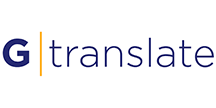Below is the same text, for automatic translations.
(Currently, the translations are erroneous when a sentence mixes bold and normal characters.)
Autistic Alliance Global Project
REPORT
about the 26th July 2016 meeting in Almaty (KZ)
by Eric LUCAS
[CONFIDENTIAL]
only for the AAGP informal “working group” [1] and for the other participants of the meeting
– The footnotes are explanations which were not mentioned during the meeting. –
(Sorry if this “report” is not very “standard”)
Final version, and release date : 9th August 2016
Today, 26th of July 2016, Asyl Miras [2] organized an informal meeting with :
– Mr. Marat AITMAGAMBETOV, director of “Asyl Miras” office in Almaty
– Mrs. Janyl MUKASHOVA, program manager of “Asyl Miras” in Almaty
– Mrs. Aliya ARKHAROVA, co-founder of the KZ parents association “Ashyk Alem” [3], who is also member of a governmental commission about inclusive education for Kazakhstan.
– Mrs. Dilyara SULTANALIYEVA, co-founder of the KZ parents association “Ashyk Alem”.
– Mrs. Zhanna KARATAI, co-founder of the KZ parents association “Ashyk Alem”, who is also the owner and director of a mountain resort here in Almaty, which is organizing inclusive summer camps and other such activities, with some autistic children.
– and me, Eric LUCAS, Asperger autistic, trying to improve the collaboration between parents and autistics, in order to improve the life and justice for the autistic population, through various initiatives, such as the “Autistic Alliance” concept.
Here is my version of the meeting, but it can be corrected when I am wrong.
We were in the office of Asyl Miras, and invited by them, so I will talk mostly about them.
With their website, their board of trustees, all what they do (especially their centers [4]), and the nice building where we were received (belonging to a bank belonging to their founder), I had a feeling of great seriousness and potential (power).
I explained my ideas (that you know already with my texts).
I insisted on the fact that the most noticeable characteristic of the Autistic Alliance Global Project (AAGP), is that is initiated by autistics, and “with autistics at their center” (not just guests), in other words it is made by autistics, but open to all kinds of collaboration. [5]
The persons from Asyl Miras told me that they like my ideas, and that, in general they can be interested by this project.
Their main question was “But how can we help ?”, or “How can we participate ?“. [6]
I recognized that I did not yet really start to think about this question, because :
– I think that it should be discussed by all the participants, and that we will know little by little who can do what ;
– I am autistic and this question is rather “social” for me, thus rather difficult (and same problem about all the “administrative” and “non-autistic” things) ;
– I think that everyone is necessary and complementary (to understand together, to help together etc.) – And that something made with “only autistics” or “only non-autistics” is surely less efficient than a “complete” “team”. This seems very logical to me, so I start in this direction (i.e. with these various participants), even though I don’t know yet what they can do.
Therefore I think that anyway it cannot be bad to have a dialog between all the main key persons or organizations for autistics in a given country (including the “centers” (ABA…)) instead of deliberately ignoring some of them for ideological reasons. [7]
Asyl Miras expressed that they like all that, and that they are open to have more different approaches, including this kind of project, but that it needs to be more concrete.
I explained that it is only the beginning and that we can all together build a serious, concrete, written project, through informal discussions in this informal group.
Once things will be more detailed and realistic and motivating, then it can be submitted to the “top” of Asyl Miras (i.e. the founder, who is also the person deciding to allow funds), and of course also to other appropriate persons, organizations or governments.
I also explained that I don’t come to ask money, and that I would like to make inexpensive things, without wasting money.
I said that the relations between the “non-autistics” participants will probably be better discussed by themselves : I don’t have many ideas about this, and also I don’t know how to “build projects” with an “acceptable form” (i.e. “standard” or “administrative” things). [8]
Asyl Miras asked me also if there are more “important people” (this is my own wording, I mean serious, relevant and and trustworthy people) interested in this nascent project, and I mentioned a few examples, like Mrs. Soumia Amrani of the Collectif Autisme Maroc, or Dr Khawla (president of Emirates Autism Society), and of course Dr. Stephen Shore. I think that it is rather “honorable” for a start, especially if you consider that these persons were “convinced” only by me, who am not very good in social relationships.
I assume that, little by little, with this kind of discussions, the project will become more clear and realistic and trustworthy and will “convince” more people to “join” it.
But for now I think it is better to start small, like for a kind of testing, with 3 or 4 countries. [9]
Regarding the autistic participants, we are only two for now, and I did not yet really start to search (it can be very complicated even between autistics, and I don’t have enough time to do all.) [10].
Asyl Miras asked me also if I contacted some centers (like ABA centers) and I don’t know much in this domain, ((but we have here in this group Mrs. Sharifa, BCBA from NECC center in Abu Dhabi [11] )) ; therefore I suggest to the participants to “dare” to discuss together, even though things are rather vague for now. [12]
Some time after the meeting, Aliya and Dilyara said that Ashyk Alem is also ready to participate in AAGP activities. [13]
——-
This is the end of this attempt to describe this informal meeting.
Thanks for reading.
I wish to express my gratitude to the participants of this first “serious” meeting, who agreed to allow me a chance to explain this project, in spite of the fact that it cannot be enough concrete for now, and that, being autistic, I cannot provide an “acceptable” project so easily.
Thanks for these efforts and these signs of good will.
Please do not hesitate to provide your comments and critiques, to eric.lucas@autisticalliance.org
or, much better, to our WhatsApp group (named *AAGP*))
Eric LUCAS
APPENDIX : Latest attempt (draft) to describe my initial ideas for this project (to discuss)
(by Eric LUCAS, on July 11, 2016)
1- It is an attempt to help the autistics of the world, with a global and altruistic (really ‘non-profit’) approach.
2- It is initiated and controlled by the autistics (which is its most noticeable characteristic), but with a balanced proportion of all the other “necessary persons” (especially representatives of national parents associations, and maybe some scientists, and some governmental representatives).
3- It is essentially based on a deep understanding of autism, which should allow to improve the current approaches and measures.
4- It can be applied concretely by :
4a- Selecting and duplicating (sharing) the appropriate informations and trainings to the parents :
— In order to help them to figure better what to do with their children ;
— By helping them to organize themselves in little groups and to train and help themselves together
— Thanks to very inexpensive and modern vectors (like Internet (3G in rural areas),tablets, to be sponsored by the States)
4b- Providing useful and relevant advices to the organizations and centers ;
4c- Fostering the participation of the nationals (autistics or parents) in the governments’ policies, in order to make their social systems more appropriate for the autistics, i.e. by taking autism into account correctly, everywhere (i.e global autistic awareness and acceptance, i.e. justice).
5- The project can also be used to “rate” the associations, centers, governments, and give them some “stars” (and explanations about why, and how to improve their ratings).
These ratings (like “Approved by the Autistics, 4 stars”) can be useful to receive funding, and for us it can be useful also to deter the practices that we judge as harmful (and in case of dispute, we can make polls, consultations etc.).
6- It is initially designed to help the people living in poorer countries, but can be used of course in any country in the need of trainings and approaches, without being subject to the domination of “businesses”.
(We are not against ABA ; things are more subtle than that, and should be fine-tuned, by understanding autism and the necessity to respect autism while teaching the “social tools”.)
7- The participants (parents, autistics, others…) can :
– Provide their opinions and advices, and share their skills, in order to make this project work ;
– Make links with their organizations, in order to see how the project could be applied there, and eventually make the necessary adaptations both in the project and in the organizations.
8- The AAGP does not intend to “reinvent the wheel”, and shall try to optimize the use of all the resources in a country, instead of attempting to replace them.
– For example, there is no “risk” (of “cheap competition”) for the ABA centers, which could even benefit from a collaboration with the AAGP, for instance by spreading their trainings (or at least the elements that we approve) to more recipients, more countries, maybe by being paid directly by the States.
– As well, regarding the awareness raising, the AAGP could just “cooperate where necessary” with organizations like the Autism Global Project.
9- Another characteristic of the project is that it has to be extremely cost-efficient, and to require the less funding possible.
The goal is to improve and optimise things, with our deep autism knowledge and with smart arrangements, instead of spending (wasting) millions for only a happy few.
However, given that there will be some minimal needs (like for the web portal and for translations), there will be a need for sponsorship. The autistic participants may not be the most appropriate ones for this task.
There is no plan for any salary or compensation in any kind ; however, in case some generous sponsor(s) allow enough funding, it may be useful to pay some specialists or services (if necessary), who would never help for free.
(Personally (Eric) I refuse any wage or salary for what I do for autism and for the autistics).
[1] The current “participants to the AAGP working group” (i.e. the persons having shown enough interest to this nascent project)
are listed below (all this is *informal*) :
(list by country/chronological order)
- Mr. Salem, Vice-President of the Emirates Autism Society (UAE)
- Mrs. Khawla, President of the Emirates Autism Society (UAE)
- Mrs. Soumia AMRANI, President of the Collectif Autisme Maroc
- Mrs. Awatif IDRISSI (Collectif Autisme Maroc)
- Mr. Zhanna KARATAI, Co-Founder of Ashyk Alem (parents org), owner of Pioneer resort (KZ)
- Stephen SHORE (autistic, USA)
- Eric LUCAS (autistic, Autistan & FR)
[2] Asyl Miras is a charitable fund, helping a lot for autism in all Kazakhstan. It means “Precious Heritage”.
[3] Ashyk Alem is a social fund for support and help for autistic children and their families in Kazakhstan, founded by three mothers of autistic children. It means “Open World”.
[4] Asyl Miras centers are centers for autism that include ABA classes and other methods of “rehabilitation”.
[5] The Autistic Alliance itself can be managed and directed only by autistics.
But I think that the AAGP should be directed “by all the group” (without autistics leaders, nor non-autistic leaders) but that in case of disagreement, the autistics should have the last word.
I try to “select” only serious and open-minded people, in order to avoid this situation.)
[6] Note of August 8th : I think now that :
– Maybe, at the beginning, each participant may try to make a short list of what he/she thinks he/she can provide (it can be knowledges, connections (persons), means…) (without promising anything) ;
– And later, for each situation or problem, it will be “posted” in the group, and the participants will do what they want/can do.
(I am not a specialist of “co-working” or “social collaboration” but I am sure that every participant can be an important “piece of puzzle”. I think that in order to solve the problems of the autistics, all those who can collaborate should do it.)
[7] This is why I contacted Stephen Shore (and I do not regret it) and this is why I am open to discuss with Autism Speaks, for a better understanding together, instead of “fighting”. This is also how Stephen sees things (I did not know that, before he explained me).
[8] I propose to submit my “ideas” coming from my autistic experience (not to say “from my autism”), and then the “non-autistic” participants can “translate” and “adapt. And of course they have to provide their own ideas, and we have to build the best solutions with all that.
[9] When I will be in Brazil (“inch’allah”) in september and october, maybe I can “add” this country to the project, but no more countries for now, otherwise it will become too much complicated to start. Let me know what you think about that. In BR, Soumia and I we know the deputy Rosinha Al Adefal. She is in a wheelchair, and my contact from the BR autism org Abraça (Alexandre Mapurunga, president) tells me that she is now head of something related to disability in the gov. It is not specialized in autism, but it cannot hurt…
[10] But I mentioned the AAGP to Roderik P. (an autistic self-advocated from NL) for his information.
He is (like me) part of the nascent “European Autistic Network, gathering the autistic self-advocacy “leaders” of the european countries (and Russia). We are about 20 now. Given that the EAN is under construction, I did not yet think about how EAN and AAGP could cooperate, and I did not mention the AAGP in the EAN discussions, because it is not appropriate for now, and it would be very confusing for the members, who are almost all new.
But I suggest to Roderik to discuss about that with Diederik Weve (another autistic self adv in NL) maybe later (and also maybe with Heta, self adv from Finland). We cannot go too fast, because we don’t have the time to do all.
I mean that it will be rather easy for me to find more autistics.
I know quite well also Josef Schovanec, who is a very famous autistic in France, but he is very very busy.
I would like to mention that I have a good relationship and collaboration with Autistic Minority International in Geneva, very active (and useful) at the level of the UN. It is really useful and it is thanks to them that I could (and we could) really start. Because the governments don’t like to face embarrassing reports at the UN. It works very well with France : now they have to listen to us, and that’s what they do. And the best of all is that they don’t regret it. For instance, the High Health Authority told me many times how much my inputs, my explanations, my “view from the inside”, are useful and unvaluable for them (they call me “expert” (I am in the managing group for adult autistics recommendations)). And the other autistics in the AAGP will be able to provide also many other complementary things.
[11] In fact, I see that she left the AAGP group today 9th August 2016, just when I am about the finalize and release this document.
She already told me that she is not sure whether she can help. I think she can, everyone can. Maybe in the future…
[12] I try to “put together” people who are sometimes not from the same “circuits” : this may be a bit difficult for them sometimes, but this how we can enrich and improve things.
[13] Therefore, they will be “added” as “participants to the AAGP working group” in the future and in the further documents.
[Autistan.org | S030000 | S031000 ABLA Project (A Better Life for the Autistics)]
Last Update: 26/08/2020




